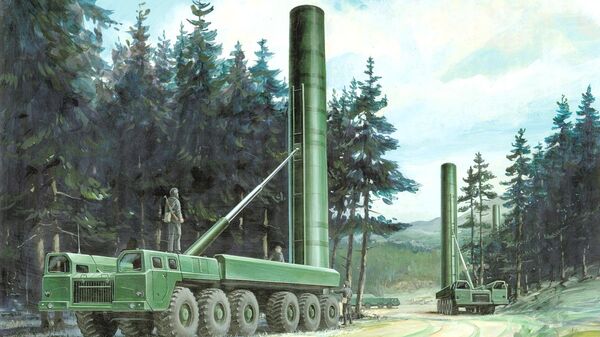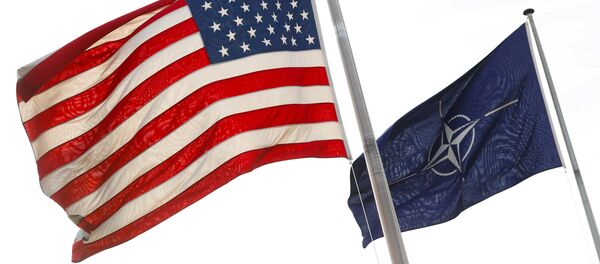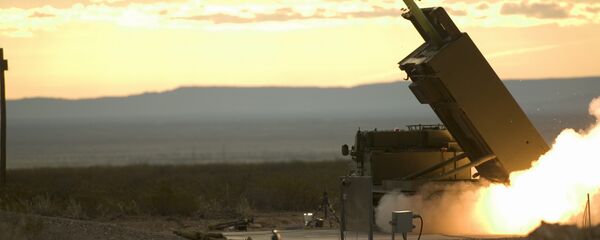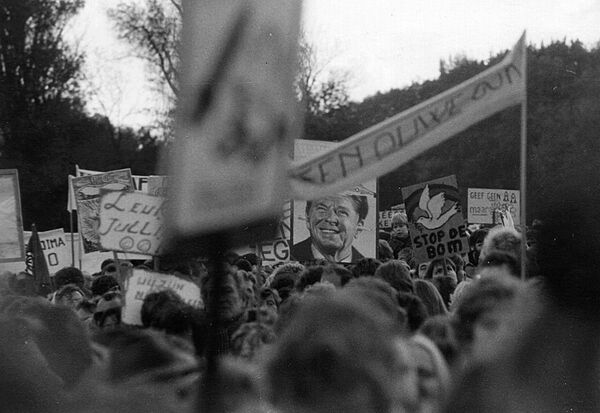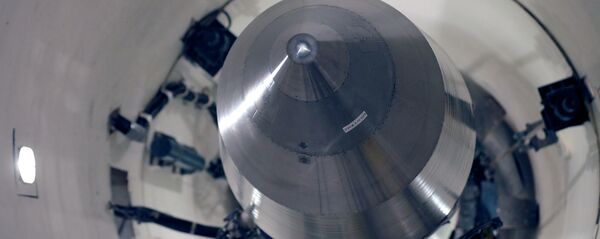Last week, Politico reported that leading Republican congressmen were urging the Trump administration to withdraw from the INF Treaty, a document signed by Moscow and Washington in 1987 which prohibits the development, deployment and testing of ground-launched nuclear ballistic and cruise missiles which have a range of between 500-5,500 km.
The Senators claimed that Russia was in "material breach of the treaty," something Moscow has vehemently denied. Foreign Minister Sergei Lavrov has repeatedly said that Russia is in full compliance with the treaty, adding that Moscow has its own concerns about US compliance. Moscow has also called on Washington to engage in discussions on the points of contention regarding the arms control agreement's implementation.
Although Trump administration special assistant on counterproliferation Christopher Ford has since clarified to Sputnik that the White House does not want to withdraw from the INF Treaty, continued murmurings about Washington's possible unilateral disengagement have sparked fears of a new nuclear arms race. The Russian Foreign Ministry has said that it could not rule out a unilateral US withdrawal, while experts have warned that such a step would lead to heightened military tensions in Europe.
Christopher Ford, special assistant to the president and National Security Council senior director for Weapons of Mass Destruction and Counterproliferation, assured Sputnik that the US does not want to withdraw from the agreement. However, he also stuck to the long-standing US claim that Moscow must return to compliance of the treaty, since "there is no reason to have treaties in the first place" if parties "can go ahead and do whatever they want."

Speaking to Sputnik, Foreign Ministry Department for Nonproliferation and Arms Control deputy director Vladimir Leontiev warned that at this point, Moscow cannot rule out a unilateral US withdrawal from the INF Treaty.
"The probability can be calculated in relation to rational actions. But when it comes to dealing with hysteria heavily mixed with anti-Russian paranoia, then behavior becomes unpredictable. So, of course, nothing can be ruled out," Leontiev said.
The official added that Moscow would see a US withdrawal from the treaty as a tremendous mistake, one which would result in a dramatic increase in military tensions in Europe, and put into jeopardy a whole range of agreements over missiles and nuclear weapons.
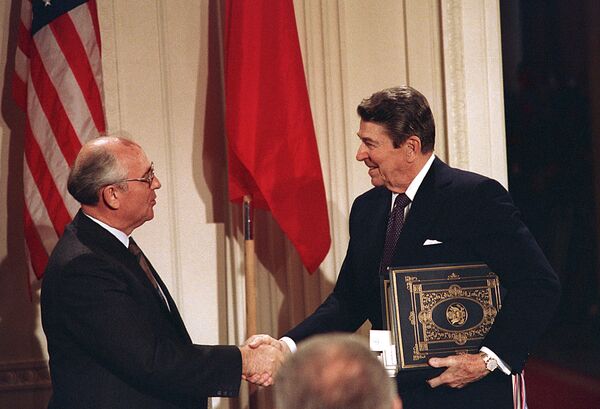
Leontiev also said that a unilateral US withdrawal from the IMF Treaty would constitute a demonstration of Washington's lack of due consideration for Russia's security interests, something which "naturally causes certain reciprocal steps. This means that the risk of conflict, even if unintended, increases."
The diplomat stressed that the Moscow and Washington already faced a similar period of tensions in the early 1980s with the so-called Euromissiles Crisis, when the US deployed its nuclear-armed ballistic and cruise missiles in Western Europe. "We have already lived through a similar scenario," Leontiev said. "And it seems now that there are forces which would like to follow on this path once again. This would be an extremely dangerous undertaking," he added.
Ultimately, the diplomat noted that he hopes that common sense will prevail, and the current batch of US politicians would not repeat the mistakes of their predecessors. If the US did withdraw, Russia would take account of this emergent threat in its military planning, which could in turn trigger a new arms race, he said.
Speaking to RIA Novosti, Ivan Timofeev, the director of Programs at the Russian International Affairs Council, a diplomatic think tank, stressed that the collapse of the INF Treaty would not be beneficial for either Moscow or Washington.
"An exit from the INF Treaty would not solve any problems, and would not increase security. Such a decision would only increase the burden on military budgets, and reduce security, because it would lead to an increase in the risks of local or full-scale nuclear conflict in Europe," the analyst said.
In his interview with Sputnik, Trump special assistant Ford said that the White House is looking to engage in dialogue with Russia on the issue, even if there are no guarantees of success. "We are hoping to soon engage in a dialogue on strategic stability. There has been an agreement to move ahead with that at some point…and with a bit of luck that kind of engagement with each other will help us understand better where the sides are coming from, and what the needs and desires and the problems are."
Leontiev stressed that Russia would welcome such discussions. "We would welcome such a conversation, because the need for it is clearly evident. But of course, I cannot say yet what will happen in practice," the diplomat noted.
